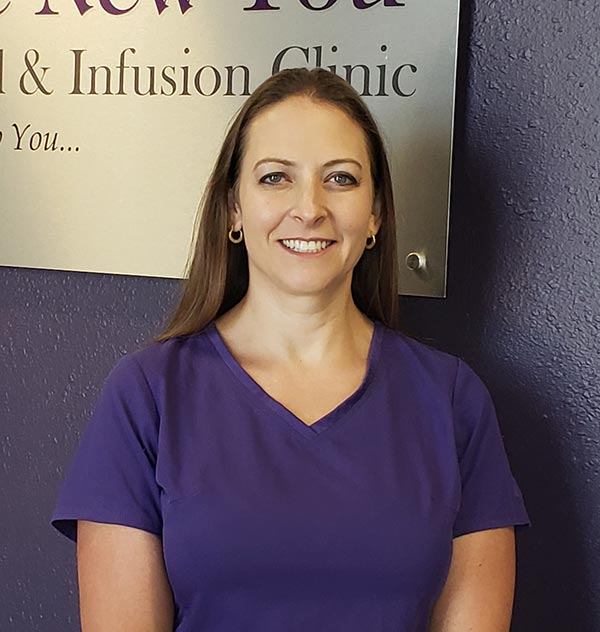Retinitis Pigmentosa Treatment in Carrollton, TX

Retinitis pigmentosa (RP) is a group of rare hereditary eye disorders that roughly affects 1 in 4,000 people. The condition generally begins in one eye and then moves to the other to bring about substantial vision loss. RP affects the retina, the light sensitive tissue that converts light rays into impulses that travel along the optic nerve to produce the images that we see.
As the most commonly inherited retina disease, retinitis pigmentosa is usually passed from parent to child; however, only about half of all people with retinitis pigmentosa have a family member with the eye disorder. It's primarily caused by a gene mutation from one or both parents in which the wrong protein, the incorrect amount of protein or a toxic protein is created. This gene mutation leads to damage to the photoreceptors (rods and cones) in the retina which are responsible for how we perceive light and color.
Presently, there is no cure for retinitis pigmentosa but several treatments to manage symptoms are available. To schedule an appointment with a retina specialist in Carrollton that specializes in retinitis pigmentosa treatment, call (817) 203-2760 or contact Ms. Jessica Stangenwald online.
Retinitis Pigmentosa Symptoms
Retinitis pigmentosa is usually diagnosed in the teen years, although symptoms begin to appear in early childhood. The speed at which it progresses varies from person to person. Symptoms of retinitis pigmentosa begin to manifest as the rods and cones in the eyes die, thereby decreasing vision quality. Common retinitis pigmentosa symptoms are as follows:
- Vision takes longer to adjust to darkness
- Vision is reduced at night and impairs driving or even walking into a dimly lit room
- Loss of peripheral vision
- Loss of central vision in later stages
- Poor color separation
Retinitis Pigmentosa Treatment
Your healthcare provider will conduct a thorough eye exam in which they get a clear view of the retina. Likely, your exam will include two specific tests:
- Visual field testing to check your peripheral vision
- A diagnostic test called an electroretinogram (ERG) which places electrodes on the surface of the eyes and emits flashes of light. The electrodes measure the response of your eyes to the light flashes.
In certain cases, genetic testing may be recommended. Upon diagnosis, your healthcare provider will discuss with you in detail the various options believed to be best in managing your retinitis pigmentosa symptoms such as various vision aids and portable lighting devices. Presently, there is no cure for RP but emerging research is consistently bringing new potential treatments to the forefront.
Vitamin A therapy, in particular, may slow retinitis pigmentosa progression; however, it is important to closely follow dosing recommendations from your healthcare provider as too much vitamin A can be toxic. Additional retinitis pigmentosa treatment options include:
- Acetazolamide, a prescription that reduces the swelling at the center of your retina. The reduction in swelling can bring some vision improvement.
- Dietary supplementation of lutein, zeaxanthin and vitamin E which can support the health of the retina and reduce retinal damage.
- Omega-3 fish oil rich in docosahexaenoic acid (DHA) used in conjunction with vitamin A therapy which may help slow vision loss.
- Sunglasses to help reduce vision loss and protect the eyes from harmful UV rays.
- Visual field-expanding glasses to help those with reduced peripheral vision through the use of prisms.
Though there are studies being conducted on gene replacement therapy for the retina, using stem cells to replace retina cells that are damaged and the potential for retinal implants to erase RP, those options are not yet available.
Retinitis Pigmentosa Prognosis
Retinitis pigmentosa will continue to slowly progress; however, RP management therapies can slow vision loss. Generally, total vision loss is uncommon and most with retinitis pigmentosa can continue to function through the use of various visual aids and through ongoing consultation with a retina specialist.
Schedule a consultation with a retina specialist in Carrollton to help you with retinitis pigmentosa treatment! Call (817) 203-2760 or contact Ms. Jessica Stangenwald online.
The New You Medical & Infusion Clinic
Address
100 Grapevine HwyHurst, TX 76054
(817) 203-2760
https://www.newyoumedclinic.com/
Hours
Mon:
10:00 am - 6:00 pm
Tue:
10:00 am - 6:00 pm
Wed:
10:00 am - 6:00 pm
Thu:
10:00 am - 6:00 pm
Fri:
Closed
Sat:
Closed
Sun:
Closed


